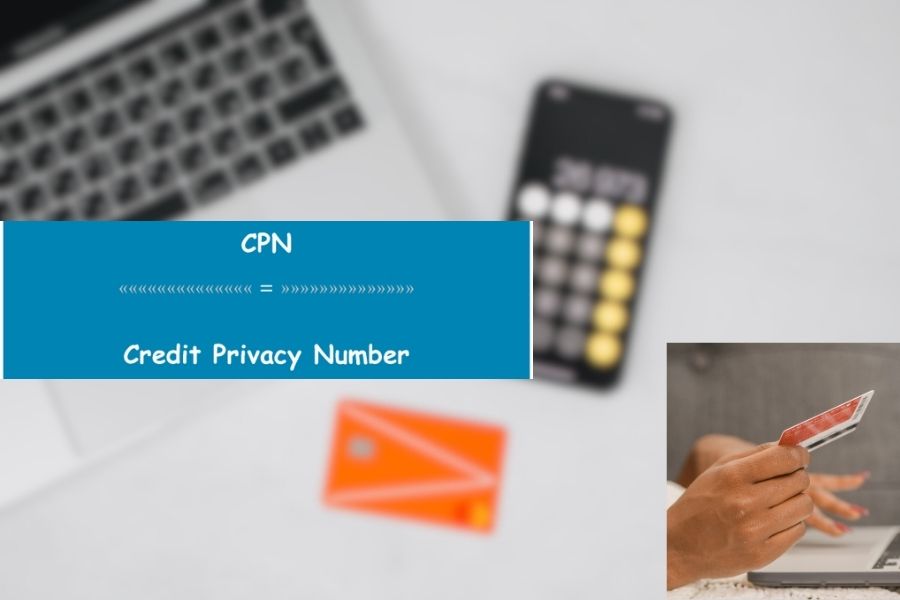In today’s fast-paced world, navigating the financial landscape can be challenging. One term that often crops up in credit and financial matters discussions is the Credit Privacy Number. But what exactly is a Credit Privacy Number, and why are so many misconceptions surrounding it? In this article, we’ll dive into the world of Credit Privacy Numbers, debunking common myths and shedding light on this mysterious financial concept.
What is a Credit Privacy Number?
CPN stands for Credit Privacy Number, sometimes called a Credit Profile Number. It is a nine-digit number marketed as an alternative to your Social Security Number (SSN) for credit-related purposes. The idea behind a Credit Privacy Number is to protect your SSN from identity theft and provide an additional layer of privacy.
Myth 1: Credit Privacy Numbers are Legal Social Security Number Replacements
Debunking Myth: One of the most prevalent misconceptions about Credit Privacy Numbers is that they are legal replacements for your Social Security Number. This is not true. Credit Profile Numbers are often marketed as such but do not hold the same legal status as SSNs.
Using a Credit Privacy Number to apply for credit, loans, or any other financial transaction with the intent to defraud is illegal. Deceptively using a Credit Privacy Number can lead to serious legal consequences, including fines and imprisonment.
Myth 2: Credit Privacy Numbers Can Instantly Improve Your Credit Score
Debunking Myth 2: Another common misconception is that Credit Privacy Numbers can magically boost your credit score overnight. This is far from the truth. Your credit score is a complex calculation based on your credit history, payment history, and other factors. While a Credit Privacy Number may offer some privacy, it cannot erase your financial history or instantly improve your credit score. Improving your credit score takes time and responsible financial behavior, such as making on-time payments, reducing outstanding debt, and managing your credit responsibly. There are no shortcuts to building good credit.
Myth 3: Credit Privacy Numbers Are Issued by the Government
Debunking Myth 3: Some individuals believe that Credit Privacy Numbers are government-issued, similar to Social Security Numbers. This is not accurate. Any government agency does not provide a Credit Profile Number. Private companies typically generate them and are not recognized as official identification numbers.
Myth 4: Credit Privacy Numbers Guarantee Approval for Credit
Debunking Myth 4: It’s a common misconception that having a Credit Privacy Number guarantees approval for credit applications. While it’s true that some people with Credit Privacy Numbers may be able to obtain credit, approval still depends on various factors, including your credit history, income, and the lender’s policies. A Credit Privacy Number is not a golden ticket to instant credit approval.
Myth 5: Credit Privacy Numbers Can Be Used to Start Fresh Financially
Debunking Myth 5: Some individuals mistakenly believe that obtaining a Credit Privacy Number allows them to start with a clean slate financially. However, your financial history is tied to your Social Security Number, and creditors and lenders will consider your credit history even if you use a Credit Privacy Number. Credit Privacy Numbers do not erase your past financial mistakes.
Myth 6: Credit Privacy Numbers Are Free
Debunking Myth 6: While finding websites and services that claim to provide Credit Profile Numbers for free is possible, be cautious. Legitimate CPN services often charge a fee for their services. It’s essential to research and choose a reputable service provider if you decide to obtain a Credit Privacy Number. Engaging with fraudulent or illegitimate providers can lead to further financial troubles.
Myth 7: Credit Privacy Numbers are a Surefire Way to Avoid Debt Collection
Debunking Myth 7: Some people mistakenly believe using a Credit Privacy Number can shield them from debt collection efforts. This is not the case. If you owe a legitimate debt, creditors have legal means to pursue repayment, even if you use a Credit Privacy Number. Attempting to evade debt collection through deceptive means can result in legal actions against you.
Myth 8: Credit Privacy Numbers Can Help You Escape Bad Credit History
Debunking Myth 8: Some believe obtaining a Credit Privacy Number will allow them to escape their bad credit history. However, using a Credit Privacy Number keeps your previous credit history and obligations. Lenders and creditors can still access your traditional credit file associated with your Social Security Number. Your past financial actions and debts will continue to affect your creditworthiness.
Myth 9: Credit Privacy Numbers Offer Total Privacy
Debunking Myth 9: Credit Profile Numbers are marketed to protect your Social Security Number but do not offer complete privacy. In many cases, lenders and financial institutions will still require your SSN for verification purposes. Additionally, if you engage in fraudulent activities using a Credit Privacy Number, you can face legal consequences, which will not protect your privacy.
Myth 10: Credit Privacy Numbers Are a Substitute for Identity Theft Protection
Debunking Myth 10: Some confuse Credit Privacy Numbers with identity theft protection services. Credit Privacy Numbers are not designed to prevent identity theft. On the other hand, identity theft protection services offer monitoring and alert services to help you detect and respond to suspicious activity related to your personal information, including your SSN.
The Importance of Financial Responsibility
Now that we’ve debunked some common misconceptions about Credit Profile Numbers, it’s essential to emphasize the importance of financial responsibility. Building and maintaining good credit is a long-term endeavor that requires responsible financial management. Here are some key takeaways:
- Your SSN is Vital: Your Social Security Number is a critical piece of personal identification. Safeguard it and only use it for legitimate purposes.
- There Are No Quick Fixes: Be wary of any service or method that promises instant credit score improvements. Building good credit takes time, discipline, and sound financial practices.
- Research and Choose Wisely: Select a reputable service provider if you obtain a Credit Privacy Number for privacy reasons. Avoid fraudulent or suspicious websites and offers.
- Face Financial Challenges Head-On: If you’re struggling with debt or financial difficulties, seek legitimate ways to address these issues, such as credit counseling or debt consolidation services.
Conclusion
CPN Numbers are only the magic solution to some credit and financial problems. They are not government-issued, do not guarantee credit approval, and cannot erase your economic history. It’s crucial to approach financial matters with caution, honesty, and a commitment to responsible financial behavior.
Remember that Shape My Score, a trusted financial advising service can provide valuable guidance and support on your journey to financial well-being. Whether you want to improve your credit score or address financial challenges, they are here to help you shape your financial future.





